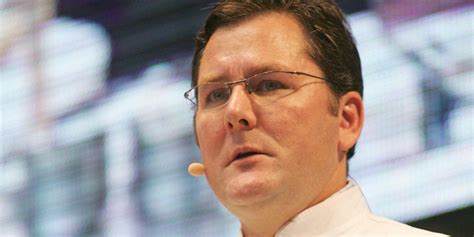A Quote by Edmund Phelps
The fallacy of the neoclassicals is their tenet that total employment, though hit by shocks, can be said always to be heading back to some normal level.
Related Quotes
Scientists rightly resist invoking the supernatural in scientific explanations for fear of committing a god-of-the-gaps fallacy (the fallacy of using God as a stop-gap for ignorance). Yet without some restriction on the use of chance, scientists are in danger of committing a logically equivalent fallacy-one we may call the “chance-of-the-gaps fallacy.” Chance, like God, can become a stop-gap for ignorance.
I have always looked at it this way: If you strive like crazy for perfection - an all-out assault on total perfection - at the very least you will hit a high level of excellence, and then you might be able to sleep at night. To accomplish something truly significant, excellence has to become a life plan.
I did this campaign that was called "Back to the Basics" where I went back to the street, went back to my block, and really felt the people. We've got to go back to that sometimes. We distance ourselves from that and we see it from afar. Some people can't relate back to that; once you're out of it, they don't want to relate back to that. It's always good to get back to the basics, though. You've got to touch the roots, you've got to touch those people. Regardless of what's going on, people always respect that.
I grew up in what you might call a relentlessly creative household. We were given art supplies, music supplies... Our mother knew enough to get us started and then stand back and not meddle. My parents never said to us, 'Don't you think you'll need something to fall back on?' They acted as though creativity was completely normal.
Total experiences, of which there are many kinds, tend again and again to be apprehended only as revivals or translations of the religious imagination. To try to make a fresh way of talking at the most serious, ardent, and enthusiastic level, heading off the religious encapsulation, is one of the primary intellectual tasks of future thought.
Tomorrow we go back to normal?" "Sure," Mab said. "It'll be like none of this happened. Except I'll still be pregnant, and you'll still be making dragons, and Glenda will still be pretending that Dreamland is Cancun, and Weaver will still own the only green velvet demon in captivity. Other than that, perfectly normal." "I just meant no demons trying to kill us," Cindy said. "My baseline for normal is a lot lower than yours.




































